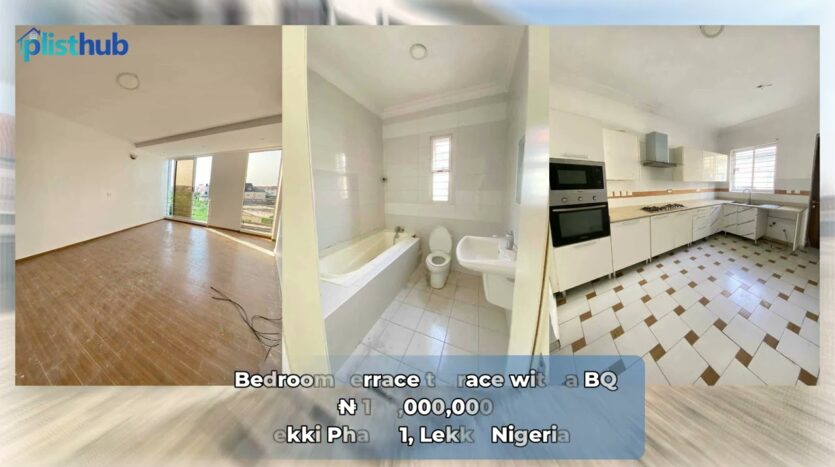17 Simple House Hunting Tips from Real Estate Experts
Property Details
House hunting offers a lot of excitement, optimism, and resourcefulness. You can explore neighborhoods, and moon woodwork, be awe-struck by counter space, and daydream of porch days. The thrill of the hunt can sometimes be stressful and discouraging and take much longer than it should. If you follow your emotions, you may waste time and effort looking at properties unsuitable for your lifestyle, financial situation, or family size.

Consider the advice below to make your house hunting as pleasurable, targeted, and fulfilling as possible. With this manual in your pocket, you’ll discover how to avoid the stress of underestimating costs and overpromising, avoid lying to anyone (including yourself), and take a simple route to your ideal home.
17 Proven and Tested House hunting Tips from PlistHub
1. Get pre-approved for a mortgage as soon as possible. The only way to know what you can afford is to apply for a mortgage and get pre-approved. This implies that your procedure begins with a visit to a loan originator’s office rather than a visit to an agent. Look at your loan alternatives after learning the distinction between pre-approval and pre-qualification.
Moreover, without a pre-approved mortgage and a clear understanding of your budget, it’s probable that you will either fall in love with a home that you can’t truly afford or that you will set your expectations too low and fail to even look at ideal homes that are genuinely in your price range.
Although it’s far more exciting to start looking at homes online or speaking with a real estate agent, getting pre-approved for a mortgage will save you time and ensure your house search stays within your budget.
2. Look for a reliable real estate agent. Finding a great real estate agent may seem like a no-brainer because nobody looks for a less-than-awesome agent, but doing so is trickier than you may believe.
Start by looking at an agent’s prior experience. Do they have a good track record of assisting homebuyers in closing? Since when do they sell in your city? Inquire about desirable neighborhoods in conversation with the agent. Do they comprehend facilities, walkability, and the sense of the neighborhood?

A real estate agent might only be a suitable fit if they have a good track record of closing deals or are knowledgeable about the areas you’re interested in. Find one who is before anyone else.
3. Get your (community’s) priorities in order. Sometimes buyers believe that the house is the most crucial aspect of property hunting. However, if you think about your life over time, you can realize how crucial your home’s neighborhood will be. Consider what else you would like to have close to your home instead of choosing an area based purely on closeness to friends or ease of commuting.
Establish a list of lifestyle “dos” and “don’ts” for your community. This can include obvious factors like the proximity to a gym or the caliber of the local schools, but try to think more broadly and picture your life as it would be if you lived here.
What kind of food shopping do you want to do (corner stores are fantastic, but do you want easy access to produce or good wine?) and how close to grocery stores you need to be are important considerations. Are there any parks in the area that you can use if you have a dog or like to run? What about your other hobbies, like tango or swimming? Are there any nearby businesses or public areas that cater to those needs?
Maintain a running list and be willing to contribute to it. You might not get everything you ask for, much like when you were a child, but it will offer Santa — er, your agent — a sense of who you are and what would ultimately please you.
4. Consider the long term. Consider how you have felt about your new house over time. The hunt for a starter home, where you can settle in for a few years but ultimately wish to go beyond, and a long-term family home, which may need to accommodate future pets, partners, or even children, differs significantly.
Try to see yourself three to five years down the line. A larger home with additional space will be ideal if your ideal life includes adding to your household’s population (or if you envisage yourself pursuing a space-demanding pastime).

5. Allow yourself some wiggle space by not shopping at the top of your budget. Even though it could be alluring to look at the limit of what you can afford and the empowerment of a pre-approved mortgage is genuine, it’s crucial to keep your search narrowed below your maximum price range.
Because unanticipated expenses can arise at closing and elsewhere during the home-buying process, keeping costs modest is a wise idea. In addition, if you’re purchasing in a competitive market, your real estate agent can suggest that you make a higher bid than the asking price to increase your chances of winning the deal.
You deprive yourself of the flexibility to be competitive and leave nothing on the table to cover unforeseen costs if you only consider homes priced at the absolute top of your budget.
6. Recognize the excitement of the hunt. How active is the market that you’re considering? How quickly do houses sell once they are listed for sale? By conducting some online research and speaking with your realtor, you can get a good idea of the pace of the market in your area.
When looking for a home, it’s important to know how quickly or slowly to proceed so that you can pace yourself after you find one you like. A quicker (or more aggressive) buyer may snatch the house from under you if you move too slowly, especially in a competitive market.
Overcompensating for lack of speed and rushing into an uncertain situation can backfire. You can lean into a sense of slowness if you’re in a market where homes tend to take their time, but remember that you don’t have endless time.
All in all, talk to your agent and pace yourself. The ideal speed is somewhere between the turtle and the hare. Find a speed that is comfortable for you but won’t leave you behind. Attempt never to forego a house inspection in favor of speed, for example, even if the market is moving too quickly for you to take some time to consider your options.
7. Remember that after you move in, you can make modifications. “Cosmetic changes are my friend” is a motto during house searching. The heavy, unattractive drapes covering the windows on the south side? Simple to tear down. In the guest bathroom, what disgusting acid yellow? Nothing that a little primer and sandpaper can’t cure!
When looking for a property, watch for affordable upgrades to improve your residence. You can see promise in properties that most purchasers might pass over at first glance because of your ability to envision, within reason, what minor modifications could make a significant difference.
8. But don’t overestimate what you can tackle, repair-wise. Because buyers don’t want to spend the time or money on cosmetic improvements, homes that have yet to be renovated before being put on the market frequently sell for less. Painting a feature wall is at one end of the wide renovation spectrum; replacing a foundation is at the other. Before you start pining after dilapidated palaces and soggy mansions, you must understand where you belong on that scale.
A solid rule of thumb is to avoid going down the debt-creating rabbit hole of buying a fixer-upper if you don’t have the support of a fantastic HGTV show or have never worked on house renovations.
9. To understand different neighborhoods, spend a night or two in each one. You will only get far by reading statistics, looking up schools, and evaluating Google Maps. Spend a few nights in your potential communities if you have the time and the means. Having a guest room, exploring the area, and mingling with locals and businesses will help you understand the community before making it your permanent residence.
If you don’t have the money for a vacation but have friends in the area, ask them if they’d allow you to stay on their couches for one or two nights. Saving money while learning about local year-round living is a bonus. The well-regarded school you want your children to attend is experiencing a significant administrative turnover, or the coffee shop with unfavorable Google ratings is a vibrant community hub. Test your commute to work during the workweek to see if it takes 45 minutes door-to-door during rush hour.
You will know once you move, and even if you think you’ll be adaptable to whichever neighborhood your ideal home happens to be, neighborhoods and neighbors significantly impact how happy you’ll be once you’re there.
10. Ask for the things that matter. Many people have many requirements and concerns when looking for a home. We adore your mother, but she might have different safety worries that you have regarding the demographics of crime. Your childhood friend is nice, but can you rely on his assessment of the “dead” nightlife in the neighborhood when his notion of a good time is burgers and beers while you’ve developed more of a taste for “tapas and chill” dining out?
It’s important to balance taking advice and allowing it to dominate your thoughts. Thank the passionate participants for their enthusiasm and advice, but keep it from steering you away from what you already know you desire. Though it’s not quite an “in one ear and out the other” strategy, prioritize your particular requirements while remaining grounded.
11. Physically tour the home. There are advantages and disadvantages to buying remotely. Looking at a house through a webcam can be difficult to detect hidden or invisible problems. Smells won’t be audible on a video, including strong ones like smoking and subtle ones like musty carpets or mildew. Neither will uneven floors, misaligned doors, or any other indication of sales tactics.

Prioritize a walkthrough to obtain a sense of the property in person before continuing. Even in the early stages of property buying, you as a buyer must remember that your eyes and gut instinct will only sometimes be accurate. Get a comprehensive, qualified home inspection before closing, even if the house appears in good condition on camera or in person.
12. Be truthful. Perhaps you’re just wandering around a house much outside your price range, or you’re poking about the open house of another realtor and don’t want to engage in a lengthy chat. You may be forced to work with the agent showing the property if you lie to them and fail to disclose that you are already dealing with another agency during the sign-in process or in the discussion. The Procuring Cause Rule is a complicated, state-dependent law, but one of the best ways to avoid even considering its repercussions is to say, “I already have an agent.”
The common explanation for lying at an open house is that you’re just curious and want some privacy to swoon over the walk-in closets and view of a house much outside your price range. Tell the truth; you only want to look around, and the house is out of your price range, rather than writing a false name on the sign-in sheet or engaging the agent in the discussion because you claim to be in the market.
There’s nothing unlawful about simply wishing to look. Being straightforward with the agent about your intentions will mean they will know to leave you alone and pursue people with a legitimate interest in buying the house.
13. Manage your expectations. It takes a lot of time and effort to buy a house! Make sure your expectations align with the pace because it can take a few heartbreaks and wrong turns to finally seal the deal. It’s crucial to speak with your realtor and learn about the typical closing timeframes in your area and the kinds of housing stock readily accessible (and within your price range). When you discover a home that fits, you should also discuss how to submit a competitive offer with your agent.
14. Keep the faith. Remember to consider your house-hunting checklist! Just realize that it will take time to find the appropriate house, which is likely to happen. Talk to your agent as you would with any other challenging aspects of your home search! They might provide some useful context about how your list of needs aligns with the region where you’re shopping, or they can share tales of previous customers who persisted and eventually found the home of their dreams.
It’s a game of numbers. You continue finding properties and making offers. It’s wise to be open to the possibility that you may need to boost your savings to increase your budget or go in directions you have yet to consider, but never lose sight of the fact that your needs should guide this process. Avoid settling for less out of desperation—that will only lead to regret! Your dream home awaits your ideal offer, so keep the faith and keep looking.
15. Keep up on upkeep. Most of us may be reasonable when renovating, but home maintenance has its impracticalities. Seeing that mansion with the meandering walkway and the lush garden is beautiful. Do you even garden, bro? If not, are you prepared for the rigors of a front yard brimming with life and weeds?
The enormous towering oaks on either side of the home are lovely in the summer, but are you ready to leaf blow, gather, and dispose of their foliage fall? All your culinary fantasies are being realized on the kitchen’s white linoleum, but are you prepared to dedicate yourself to the routine sweeping and cleaning required to maintain that spotless shine?

Be practical, use a maintenance calculator, and consider “future you.” Match the care your home will require to the reality of your comfy habits if you are more of a lone plant owner or a dirty kitchen diva.
16. Costs concealed from view Remember to focus on something other than the listing price that you lose sight of all the additional fees that come with owning a particular house.
Find out about utility costs and the kind of insurance the house needs. Insurance requirements and exorbitant heating costs might shed light on less visible flaws during a walkthrough, such as inadequate insulation or a fire risk (that, or the former tenants loved to live inside a hothouse).
To get a complete picture of your yearly expenses as the new property owner, look into HOA dues.
17. Buying? Renting? Consult your landlord. Lastly, think outside the box by speaking with your landlord. Ask if there’s anything they’re willing to sell if you’re renting a single-family house from an individual or even if you live in an apartment and know that your landlord owns other properties.
They may have resisted listing due to the difficulty of interacting with the market or weren’t convinced they were ready to sell before your well-timed question occurred. Asking won’t harm you, especially if you’re a good tenant or have a close relationship with your landlord.
In a nutshell…
In conclusion, there are several effective strategies for conducting your house search. Follow these simple steps to save some of the confusion, time, and heartbreak associated with the home-buying process, from dealing with a top-notch professional you can trust to avoiding placing your needs before your finances (get that pre-approval!). In conclusion, be open-minded and have fun!







